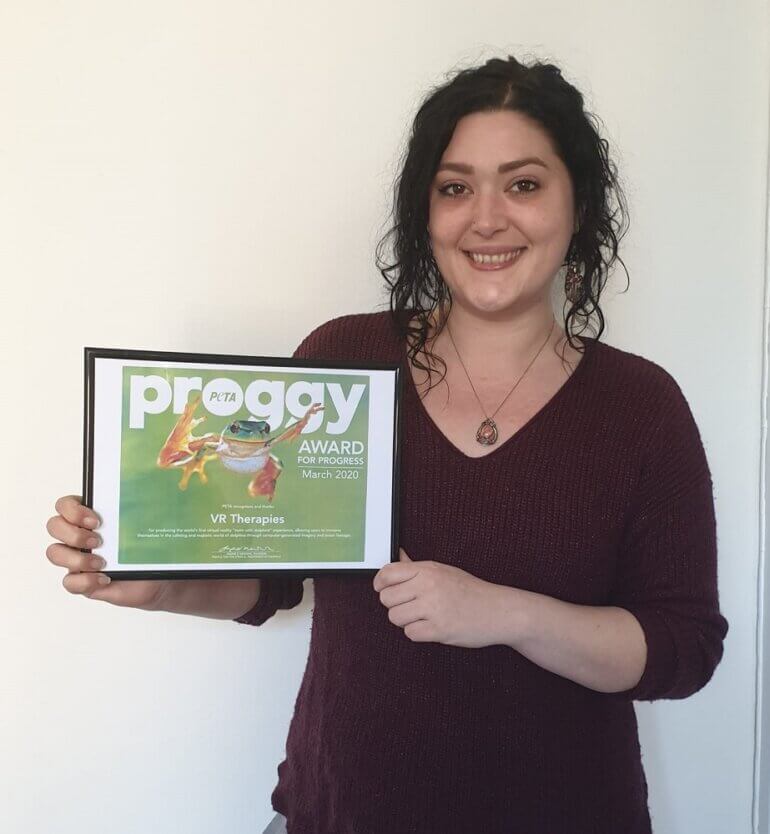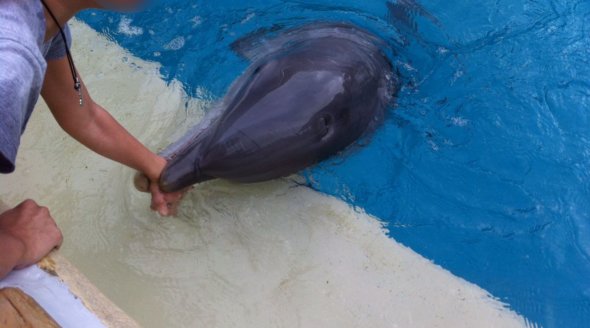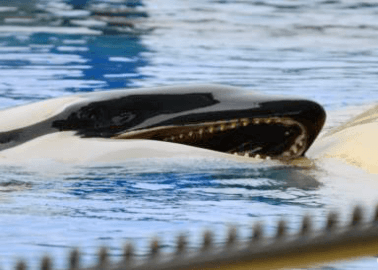Virtual ‘Swim With Dolphins’ Experience Nabs PETA Award
PETA has given VR Therapies a Proggy Award for designing a new interactive experience that helps those with special needs and encourages people never to swim with captive dolphins or visit aquaria or marine parks.
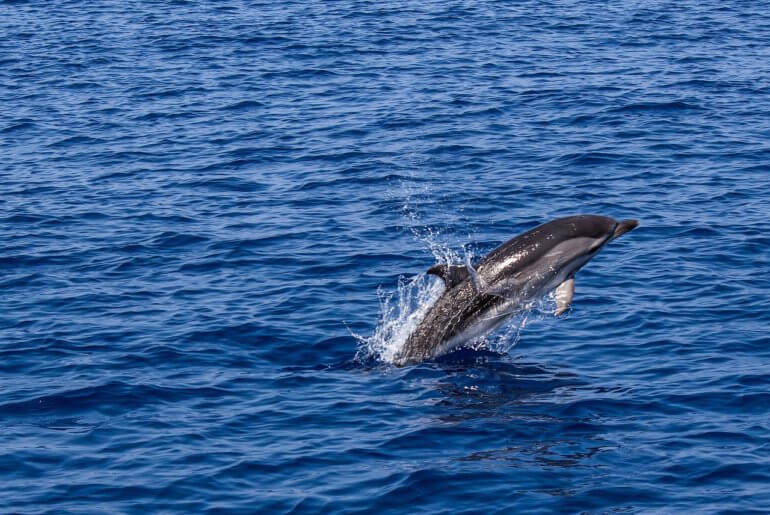
Our Proggy Awards (“Proggy” is for “progress”) recognise animal-friendly achievements in commerce and culture.
The “swim with dolphins” experience uses 360-degree virtual reality to put users – who are immersed in a hydrotherapy pool – in the presence of a pod of wild dolphins. Through the advanced technology, users can entice the computer-generated animals to play with them – without harming any real animals.
Rebecca Gill, the founder of VR Therapies, highlights the advantages of the project:
“By using virtual reality instead of imprisoned animals, we can help prevent dolphins from being kept in captivity, conserve their natural habitats, and raise awareness of the plight of captive marine mammals.”
Empty the Tanks
In the open ocean, dolphins swim up to 50 miles a day alongside their families and communicate over vast distances by sonar. In marine parks, they’re forced to perform in pools filled with chemically treated water.
Their sonar bounces off the walls, which can drive them mad and cause depression, ulcers, and early death.
Today, the vast majority of the public is against imprisoning cetaceans for entertainment. In fact, a customer survey by Virgin Holidays found that 92% of respondents “prefer to see animals in their natural habitat” rather than in captivity.
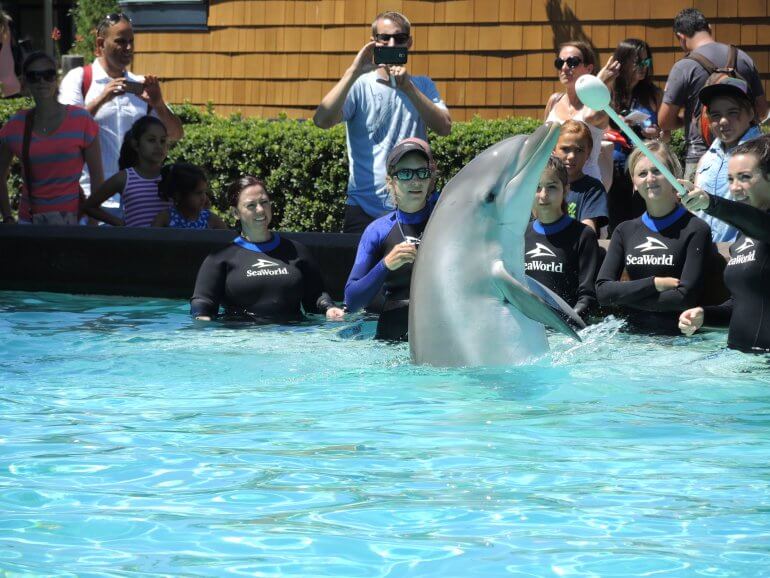
And yet, SeaWorld continues to imprison dolphins, orcas, and other far-ranging marine mammals in cramped tanks and forces them to perform sea-circus tricks for visitors.
What You Can Do
After hearing from PETA and our international affiliates, many travel providers have cut ties with marine abusement parks. British Airways Holidays and Virgin Holidays both said “No, thanks” to keeping marine mammals in tanks, and Airbnb, TripAdvisor, and Booking.com quickly followed suit. However, TUI is still profiting from dolphins’ misery.
If you haven’t already done so, please contact TUI and urge it to stop selling tickets to SeaWorld and other facilities that hold dolphins captive.

